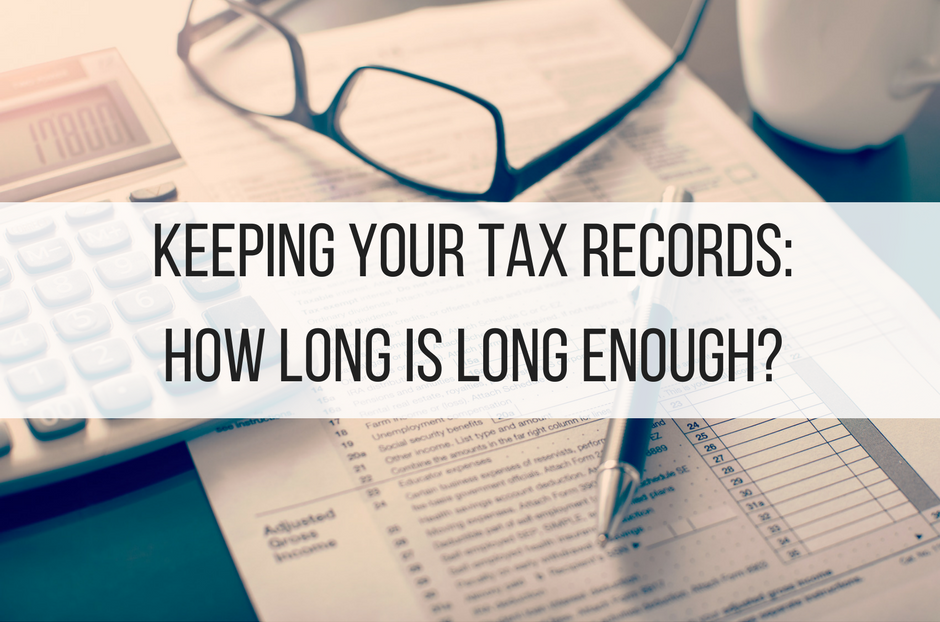
Preparing your taxes requires a lot paperwork – that’s a fact. However, most individuals and business owners aren’t exactly sure what they need to hold onto and what they can throw away once a given year’s taxes are done. When you understand your tax liabilities and record requirements, you’ll be able to make better decisions about what to keep and what you don’t necessarily need to hold onto.
IRS Requirements
The IRS requires that you keep your tax paperwork for at least three years from the time the tax return was filed. Most states have similar timeframes, but you should always do your research and understand your state tax board’s specific requirements.
The length of time that you hold onto your paperwork may also depend on your filing habits. If you’ve had some questionable activity and get selected for an audit, you will need to have this paperwork on hand to show that your returns were accurate.
Personal Records
One good reason to hold onto your tax records is for personal use. Let’s say you are trying to sell capital assets. The more past information you have about what you spent, the exact date you purchased it, and so on, the better off you will be when reporting the sell of capital assets on future tax returns. Therefore, certain tax documentation and expense records should be held onto in case they are relevant down the line.
Other records you might want to hold onto include:
- Stock purchases and mutual fund statements – Keep these for a minimum of four years after any stock is sold to document profits/losses, reinvestment of dividends or funds that may change your tax basis.
- Home improvement records and expenses – Keep these for a minimum of four years after you sell the property. This will help you maximize the home gain exclusion and avoid having to pay certain unnecessary taxes.
- Net operating losses – If you own a business, keep all documentation the proves net operating losses for a minimum of four years.
What About Old Tax Returns?
There is no legal requirement to keep copies of old tax returns because the agencies will have their own copies. However, it is a good habit to hold onto them. Another good idea is digitizing them to save space taken up by hard copies.
The most important thing to remember is to keep accurate records and support documents that will prove the authenticity of your tax returns. If you don’t have certain information and records available, it could be troublesome if you ever get selected for an audit. Play it safe and understand your requirements.
To learn more about tax documentation and federal/state requirements that apply to you, contact Ferguson, Timar & Company for a tax consultation. We can help you with the documentation and record keeping, so you always have accurate information available.
